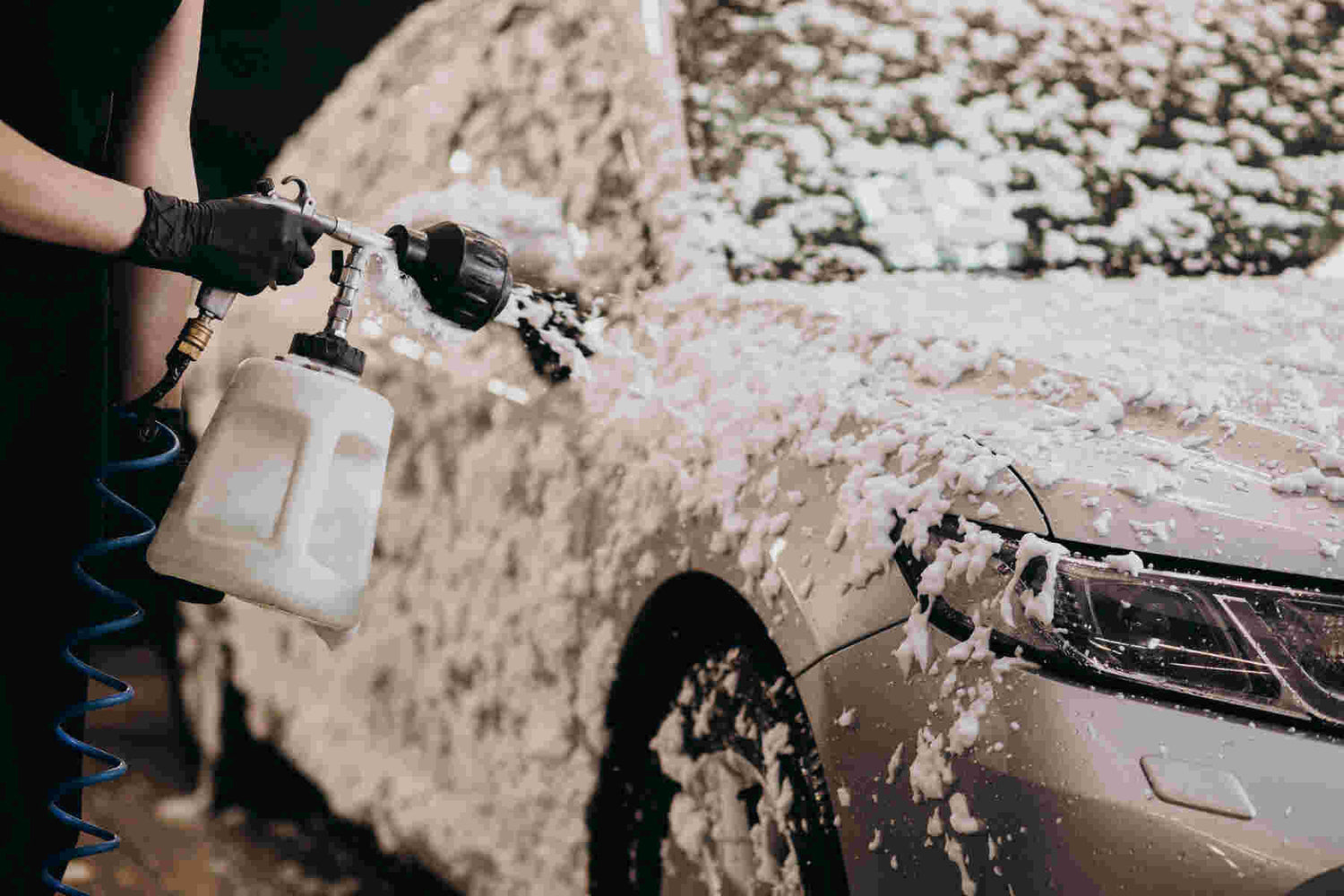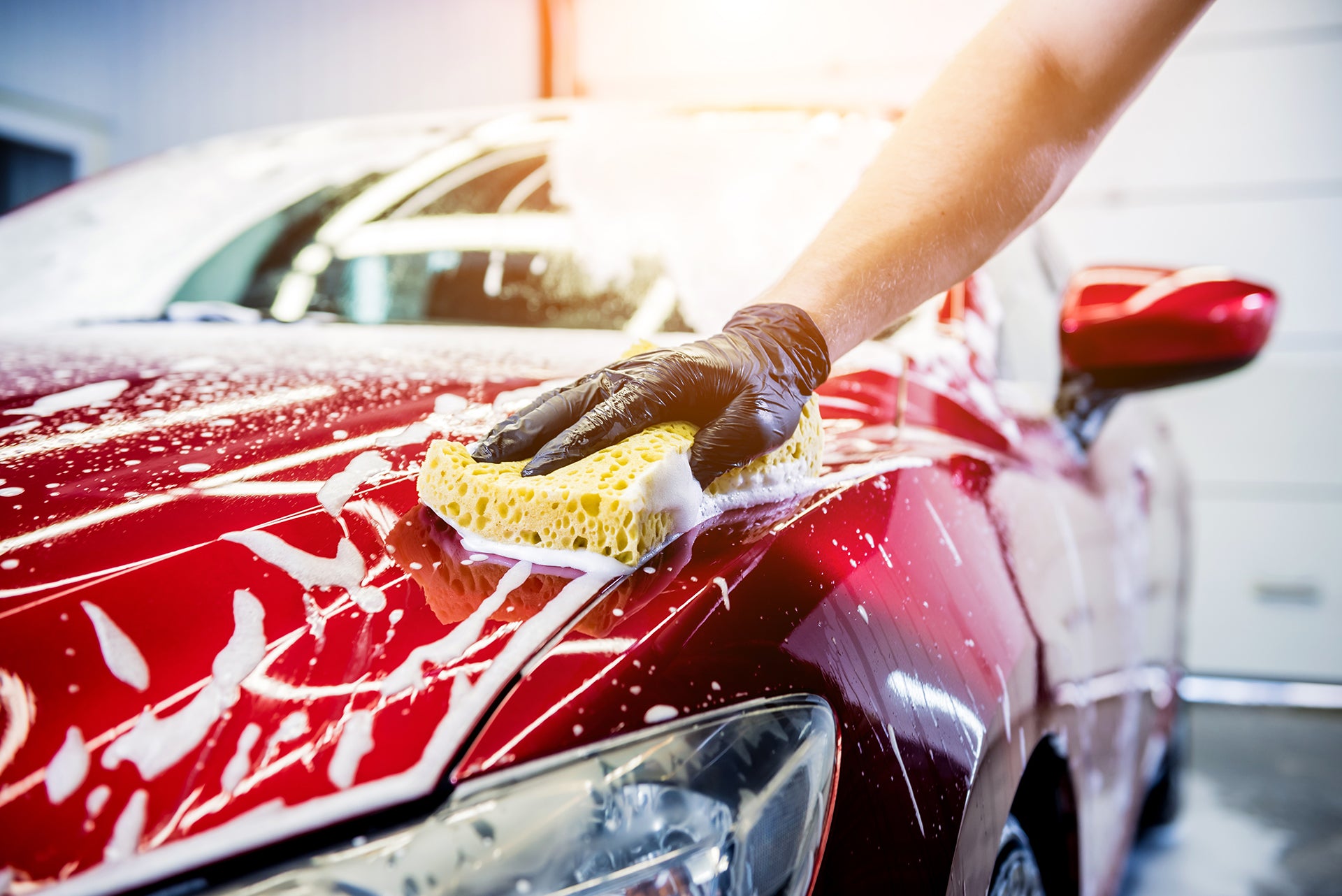Yes, you can wash your car too much. Excessive washing can damage the paint and protective coatings.
Regular car washing is essential for maintaining its appearance and value. Dirt, grime, and environmental contaminants can harm your vehicle’s finish. Frequent washing helps prevent rust and corrosion.
However, over-washing can lead to scratches and swirl marks. It’s important to choose the right products and techniques for your wash.
Consider your car’s exposure to elements like road salt, bird droppings, or tree sap. These factors can influence how often you should wash your vehicle. Striking a balance is key.
Aim for a clean car without risking damage to the paintwork. Prioritize quality over quantity for the best results.
Now, learn more about whether can you wash your car too much.
The Love For A Shiny Car

Credit: washnwhips.com
Many car owners take great pride in their vehicles. A shiny car often reflects personal care and attention. But how much is too much? Finding the balance is essential for your car’s health.
Personal Satisfaction
Owning a shiny car brings joy. It creates a sense of achievement. Here are some reasons why:
- Confidence Boost: A clean car can make you feel good.
- Maintenance Pride: Regular washing shows you care.
- Attention to Detail: A shiny car reflects your personality.
Many people enjoy the process of washing their cars. It can be therapeutic. The satisfaction of seeing your car gleam is unmatched.
Social Impressions
A shiny car often leaves a lasting impression. People notice clean vehicles. This can lead to various social benefits:
- Positive Image: A well-maintained car enhances your reputation.
- Social Status: A clean car can signify success.
- Conversation Starter: Others may compliment your car.
Friends and family often admire a shiny vehicle. It can spark discussions about car care and maintenance. A well-kept car can elevate your social standing.
In the end, a shiny car provides both personal and social rewards. It’s important to wash regularly, but moderation is key.
Ideal Frequency of Car Washes
Washing your car keeps it looking fresh. But how often should you do it? Finding the right balance is key. Too many washes can harm your paint. Let’s explore the ideal frequency for car washes.
Manufacturer Recommendations
Car manufacturers provide guidance on wash frequency. Here are some general recommendations:
| Car Type | Wash Frequency |
|---|---|
| Sedans | Every 2 weeks |
| SUVs | Every 3 weeks |
| Trucks | Every month |
Refer to your owner’s manual for specific advice. Follow these guidelines to keep your car’s finish intact.
Environmental Factors
External conditions impact how often you should wash your car. Consider these factors:
- Weather: Rain and snow can leave dirt.
- Season: Winter salt can corrode paint.
- Location: Coastal areas have salt in the air.
Adjust your wash frequency based on these conditions. For instance, wash more often in winter. This keeps your car protected and looking great.
Consequences of Excessive Washing
Washing your car too often can lead to several problems. Understanding these issues helps you maintain your vehicle’s appearance and value.
Paint Damage
Excessive washing can harm your car’s paint. Here are some ways it can cause damage:
- Scratches: Frequent scrubbing can create micro-scratches.
- Fading: Over time, harsh soaps can strip paint color.
- Clear Coat Wear: The clear coat protects the paint. Excess washing can wear it down.
To protect your paint, consider these tips:
- Use soft microfiber cloths for washing.
- Choose gentle, pH-balanced car soap.
- Limit washing to once every two weeks.
Wax Degradation
Frequent washing can also degrade your car’s wax. Wax plays a crucial role in protecting your paint. Here’s how excessive washing affects wax:
| Effect | Description |
|---|---|
| Shortened Lifespan | Wax lasts longer with less frequent washing. |
| Reduced Shine | Over-washing dulls the glossy finish. |
| Increased Cost | More washes mean more frequent reapplication of wax. |
To maintain wax, follow these tips:
- Wash with care and avoid harsh chemicals.
- Apply wax every three months.
- Consider using a spray wax after washes.
Chemicals And Their Impact
Washing your car involves various chemicals. Some are beneficial, while others can be harmful. Understanding these chemicals helps protect your vehicle’s finish and longevity.
Harsh Detergents
Many car washes use harsh detergents. These detergents remove dirt but can damage paint. Here are some common harsh chemicals:
- Ammonia
- Sodium lauryl sulfate
- Bleach
These chemicals can strip wax and protective coatings. Frequent exposure may lead to fading and oxidation. Always check labels for safe ingredients.
Long-term Effects
Using harsh chemicals over time has significant effects:
| Effect | Description |
|---|---|
| Paint Damage | Harsh chemicals can eat away at your car’s paint. |
| Corrosion | Chemicals may cause metal parts to rust. |
| Loss of Shine | Your car may look dull and worn out. |
Choose mild, eco-friendly car wash products. These protect your car while keeping it clean.
Water Usage And Environmental Concerns
Washing your car is essential for its upkeep. Yet, it can impact the environment. High water usage leads to waste and runoff. This runoff can carry harmful chemicals into local water sources. Understanding these concerns helps promote better practices.
Conservation Tips
- Wash less frequently: Consider washing your car every few weeks.
- Use a bucket: Fill a bucket instead of using a hose.
- Spot clean: Clean only the dirty areas instead of the entire car.
- Collect rainwater: Use collected rainwater for washing.
- Use a sponge: Use a sponge to minimize water use.
Eco-friendly Alternatives
| Method | Description |
|---|---|
| Waterless car wash | Spray-on products that clean without water. |
| Biodegradable soaps | Soaps that break down naturally and reduce pollution. |
| Professional car washes | They often use less water and recycle it. |
Striking The Right Balance

Credit: cardetailexpress.net
Finding the right balance in car washing is crucial. Too much washing can harm your car’s finish. A proper routine helps maintain cleanliness without overdoing it.
Routine Maintenance
Regular washing keeps your car looking fresh. It also protects the paint. Here are some tips:
- Wash your car every two weeks.
- Use a soft sponge or cloth.
- Always rinse before washing.
- Dry with a microfiber towel.
These steps prevent scratches and swirls. They ensure your car stays in good condition.
Protective Measures
Protecting your car enhances its longevity. Consider these protective measures:
| Measure | Description |
|---|---|
| Waxing | Apply wax every three months for a protective layer. |
| Sealants | Use sealants for longer-lasting protection. |
| Park in Shade | Avoid direct sunlight to reduce damage. |
These measures help keep your car clean and shiny. They also reduce the need for frequent washing.
Frequently Asked Questions
How often should you wash your car?
You should wash your car every two weeks to maintain its appearance and protect the paint from dirt, grime, and contaminants. However, the frequency may vary based on driving conditions—wash more often if you drive in harsh weather, on salted roads, or in dusty areas. Regular washing prevents long-term damage and preserves your car’s value. Don’t forget to wax every 3-6 months for added protection.
Is it bad to wash your car every day?
Washing your car every day is generally unnecessary and can be harmful. Frequent washing, especially with harsh chemicals, can strip the wax, damage the paint, and cause rust over time. Additionally, excessive water use is wasteful. Unless your car is exposed to extreme dirt, salt, or contaminants, washing it once every 1-2 weeks is sufficient to maintain its appearance and protect its finish.
Is it bad to wash your car every week?
Washing your car every week is not inherently bad and can help maintain its appearance and protect the paint from dirt, grime, and contaminants. However, excessive washing, especially with harsh chemicals or improper techniques, can strip wax, damage the finish, or cause scratches. Use a gentle car wash soap, soft materials, and avoid automatic car washes with abrasive brushes. Regular, mindful washing is beneficial for your car’s longevity.
How often should you wash your car in the winter?
In winter, washing your car every two weeks is generally recommended to remove salt, grime, and road chemicals that can damage the paint and undercarriage. However, if roads are heavily salted or conditions are particularly dirty, consider washing it weekly. Always choose a day above freezing to prevent water from freezing on the surface. Don’t forget to clean the undercarriage to prevent rust and corrosion.
How much is a car wash?
The cost of a car wash varies depending on the type and location. Basic exterior washes typically range from $10 to $20, while more comprehensive services, including interior cleaning, can cost $25 to $50 or more. Luxury or hand washes may exceed $75. Subscription plans or discounts can reduce costs. Prices also depend on vehicle size and additional services like waxing or detailing.
Conclusion: Can you wash your car too much?
Yes, it can. Too much car wash will damage the outside of your car. The too-frequent use of the wrong chemicals and techniques in washing will strip protective waxes from the car, damage paint, and scratch the car. These will lead to its fading over time, hence reducing its resale value. Wash every 2-4 weeks using gentle products and methods to maintain appearance without causing undue wear. Adjust based on weather and driving conditions.
